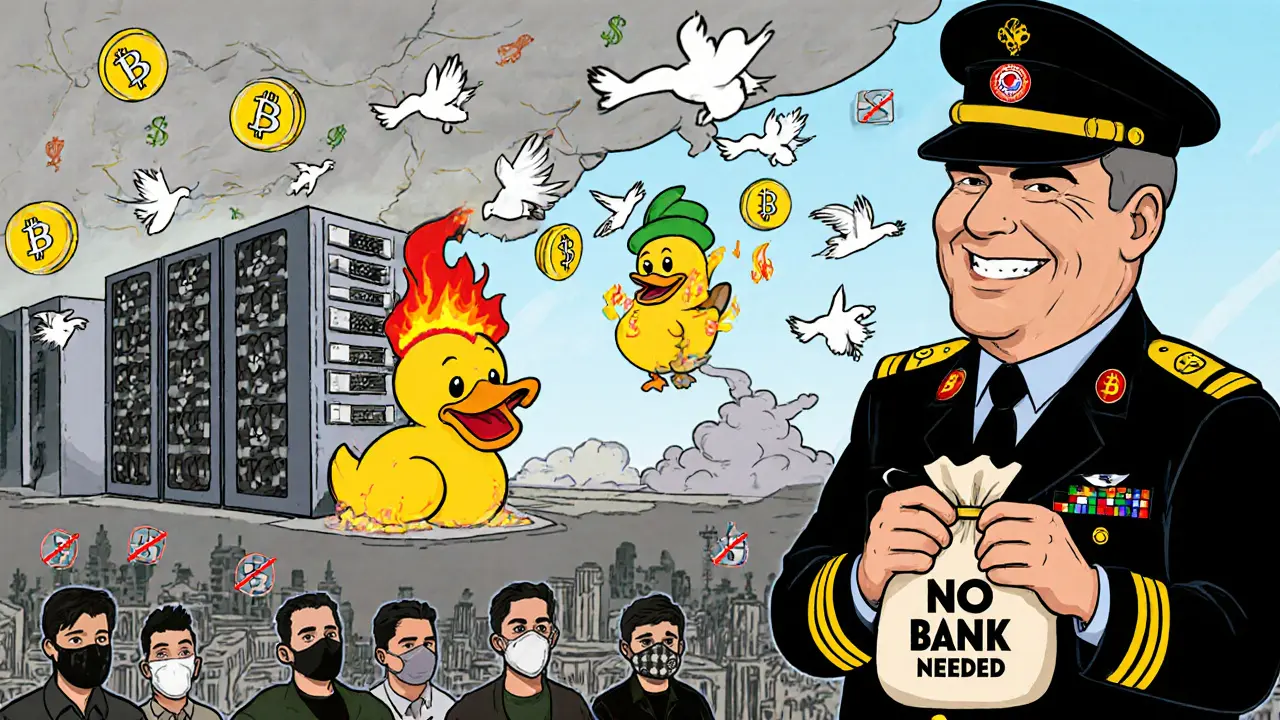Cryptocurrency Sanctions: What They Are, Who They Target, and How They Impact Your Portfolio
When we talk about cryptocurrency sanctions, government-imposed restrictions on blockchain transactions involving specific wallets, exchanges, or individuals. Also known as crypto compliance measures, they’re no longer theoretical—they’re actively blocking access to markets, freezing assets, and forcing exchanges to cut off users. This isn’t just about rogue actors anymore. From North Korean hacking groups to Russian oligarchs using mixers, regulators are tracing crypto flows like never before.
These sanctions don’t just hit bad actors—they ripple through the whole ecosystem. Exchanges like cryptocurrency sanctions are now required to screen every deposit and withdrawal against global watchlists. If your wallet even once interacted with a flagged address—even unknowingly—you could get locked out. The OFAC crypto list, the U.S. Treasury’s official database of blocked crypto addresses and entities. Also known as OFAC sanctions list, it includes hundreds of wallets tied to ransomware, darknet markets, and state-sponsored theft. And it’s growing fast. In 2024 alone, over 1,200 new crypto addresses were added.
It’s not just the U.S. Either. The EU, UK, and Singapore all have their own crypto compliance rules, and they’re starting to align. The MiCAR framework, the European Union’s comprehensive crypto regulation that enforces KYC and transaction monitoring. Also known as Markets in Crypto-Assets Regulation, it forces exchanges to report suspicious activity or face heavy fines. That means even if you’re trading on a non-U.S. platform, you’re still under scrutiny if you’re using dollars, euros, or even stablecoins pegged to them.
What does this mean for you? If you’re holding tokens from projects with weak compliance, or using unregulated exchanges like GIBXChange or Karatbit, you’re at risk. Those platforms don’t screen transactions the way Coinbase or Binance do. One wrong transfer, one forgotten airdrop from a blacklisted wallet, and your funds could vanish overnight. Even crypto airdrops, free token distributions often used to bootstrap new projects. Also known as token giveaways, they aren’t safe anymore—some have been frozen mid-distribution because the issuer was linked to a sanctioned entity.
And it’s not just about legality—it’s about practicality. If you’re trying to buy crypto with UPI in India, or trade on a high-leverage platform like Echobit, you’re already in a gray zone. Regulators are watching those flows closely. The same tools that let you earn passive income in DeFi liquidity pools can also make you an unintentional participant in money laundering. That’s why understanding blockchain compliance, the systems and protocols exchanges use to follow global crypto rules. Also known as crypto AML, it isn’t just for lawyers—it’s for anyone holding digital assets.
What you’ll find below isn’t a list of banned coins or a scare tactic. It’s a real-world view of how sanctions are changing the game. From exchange reviews that call out compliance gaps, to guides on spotting fake airdrops tied to blacklisted entities, these posts show you how to protect your portfolio—not just from scams, but from the rules that now govern the entire crypto space. You don’t need to be a regulator to stay safe. You just need to know where the lines are drawn.

